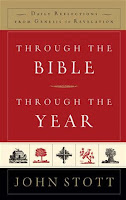The Ten Commandments
The Ten Commands function as fence, protecting us from erroneous behavior. This is known as the "first use of the law". They are also seen as a mirror showing us our sinfulness and need for grace. This is sometimes referred to as "the second use of the law." But the Ten Commandments also function as a lens, clarifying the nature of reality around us and directing us into a greater apprehension of the truth. This is sometimes referred to as the "third use of the law."
The first law, which instructs us to worship and obey the LORD God exclusively, functions according to the third use of the law by illuminating heresy. Christians sometimes disagree about what a heresy is or what beliefs count as heretical. For example, Roman Catholics and Orthodox believe that Five Point Calvinism is a heresy. (This was an assertion recently made by Metropolitan Jonah of the Orthodox Church of America. Some were stunned to hear this, but it was not surprising to those who know and understand Christian tradition. IT is common knowledge.) However, most protestants do not consider Calvinist heretics. I certainly do not believe that. Some may be doctrinal deviants, but not heretics. Most of the Calvinist I know are devout and orthodox.
So what is a heresy? The first commandment is a helpful interpretative device in this regard. The first command requires us to nourish and protect faith in God. Heresy is one of many ways of sinning against faith. On a continuum between voluntary doubt (where someone disregards the revelation of God and consensual teaching of the Church) to apostasy (the total repudiation of the faith) there stands heresy. Heresy is an obstinate doubt, a severe doctrinal deviation but one that falls short of apostasy. Heresy is dangerous because it usually involves schism (a breaking of the communion of the church and the unity for which Christ himself prays - John 17:21) and thus a distancing from the life of God which saves us. John outlines this order of salvation in I John 1:3 - "that which we have seen and heard we proclaim also to you, so that you too may have fellowship with us; and indeed our fellowship is with the Father and with his Son Jesus Christ." According to John, we come into fellowship with the Triune God through the fellowship of the community of faith. Through proclamation and hospitality, we come to into the fellowship of the Church, which participates in the fellowship of the Trinity. It is the actual reality of divine communion, our particiation in the fellowship of Father, Son and Holy Spirit in the communion of the Church that saves us - not merely doctrines about it, as important as those doctrine are for the nourishing and strengthening of that fellowship. Heretical teaching violates that unity which ensures our salvation.
Apostasy is full-on, overt repudiation and separation from that divine-human fellowship. Various forms of voluntary doubt and obstinancy prevents growth in the faith as well as growth in spiritual virtue. This is often evidenced by a vicious, sterile spiritual life that with proper instruction and formation, could have become a virtuous and fruitful one. In this instance, one is most likely some kind of doctrinal and spiritual deviant but not necessarily a heretic. Doctrinal deviants are often recognized by their barrenness, the inverse of spiritual fruitfulness (see Matt 7:16-18, Jn 15:16-17, Rm 7:4-6, Gal 5:22-26, Phil 1:9-11, etc). Heresy is moving from the later to the former - from vountary doubt, to deviation, and unless corrected, develops into full blown repudiation. So heresy is doctrinal and spiritual deviance on the trajectory towards apostasy. Thus one can be both a Christian AND a heretic. Indeed, in the Roman Catholic Church protestants are usually considered both "heretics" and "brothers." Unlike an apostate, a heretic is not yet lost to God. Which is why Augustine was tireless in challenging the deviance of Donatists and Pelagians and urging them to return to the Catholic fold. The heretical trajectory can be turned. Doctrinal deviance can be repudiated. Augustine sought to help other Christians turn the heretical trajectory and repudiate the doctrinal deviance many found themselves in. I will explore the relevance of Augustine in this matter in later posts.
The First Command, by upholding fidelity to the true God, also teaches us about sins against faith and thus functions as a lens on spiritual reality. Each of the commands have such a "third use," which clarifies reality and thereby secures greater apprehension of the truth.

No comments:
Post a Comment